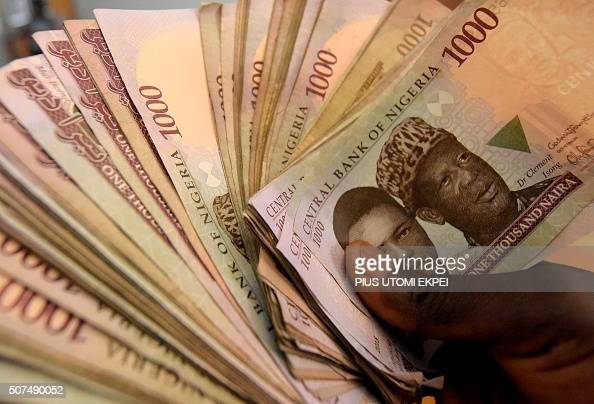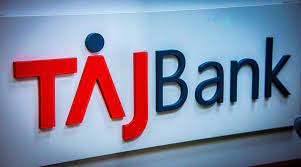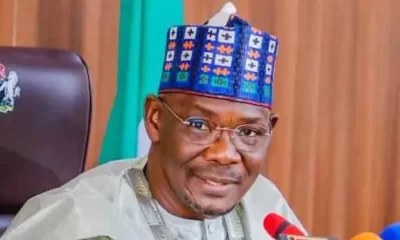OPINION
We Cannot All be Capitalists

By Ibrahim Shelleng
Imagine Nigeria’s business landscape as a vibrant marketplace. Bustling stalls overflow with ideas, but everyone’s selling the same “hustle” brand. This brand is headquartered in the city of Lagos, Nigeria, where no body is welcomed but rather reminded that “This is Lagos!” and “Eko o ni baje!”, a colloquial phrase that loosely translates to Lagos will prevail.
Therefore, those that are caught in the hustle and bustle either by default or design, seemingly have no choice but to embrace its energy.Everybody must hustle! This has undoubtedly played a part in birthing some of the wealthiest individuals in Africa and has largely contributed to Lagos alone being amongst the top 10 largest economies in Africa but amidst such opulence lies an underbelly of abject poverty.
Kano, an ancient city in the Northern part of Nigeria, is also known for its hustle culture but rather than the cutthroat Lagos version, the hustle tends to be tempered by a combination of an ancient feudal system, intertwined with strong Shariah (Islamic) principles. Whilst it could be argued that this may limit the city’s potential for economic growth, it has potentially put a lid on a boiling pot of a city known for social unrest especially during economic downturns.Therefore, the statement “We cannot all be capitalists” might sound counterintuitive in a world seemingly driven by market forces. But for a nation like Nigeria, with its complex social fabric and diverse needs, a singular focus on capitalism risks overlooking valuable alternatives that could unlock its true economic potential. Diversity is not just about culture and traditions; it extends to our economic perspectives too.
Imagine a world where everyone is a capitalist, chasing profits and bottom lines without considering the broader impact. That’s not a recipe for success; it’s a ticket to economic imbalance and inequality. While free markets undeniably fuel innovation and growth, embracing a broader spectrum of economic views can foster a more inclusive, sustainable, and ultimately stronger business environment. So, let’s shake things up a bit and explore how different economic views can contribute to a more robust and inclusive business environment in Nigeria.
Capitalism, undoubtedly, has been a driving force behind economic growth and entrepreneurship globally. In Nigeria, it has manifested in the form of ambitious startups, job creation, and an ethos of competition that propels industries forward. The pursuit of profit has led to innovation, efficiency, and a dynamic market. However, an economy dominated solely by capitalism can be a double-edged sword. It has presented the following challenges:
Widening Inequality:Unfettered capitalism, while generating wealth, often concentrates it in the hands of a few, exacerbating inequality, a significant concern in Nigeria. The Gini coefficient, a measure of income disparity, shows Nigeria ranking poorly, highlighting the need for alternative approaches that prioritize equitable distribution.
Neglecting Social Needs: The relentless pursuit of profit can overlook crucial social needs like healthcare, education, security and infrastructure. While private enterprises play a role, solely relying on them often leaves these areas underfunded, hindering human development and societal progress.
Environmental Degradation: The single-minded focus on maximising profit can lead to unsustainable practices, harming the environment. Nigeria faces deforestation, pollution, and climate change, demanding economic models that prioritise environmental well-being alongside economic growth.
The Socially Conscious Paradigm
This is where the value of exploring different economic views lies. By acknowledging the limitations of a single model, Nigeria can unlock a wider range of solutions that cater to its unique needs and aspirations. Here are some key alternative perspectives to consider:
Social Democracy: This model emphasises a strong role for government in providing social safety nets, ensuring equitable access to education and healthcare, and promoting fair labour practices. This can help address income inequality and create a more inclusive business environment where everyone has a chance to participate and contribute.
Cooperative Movement: Promoting cooperatives, where workers or communities own and manage businesses, can foster economic empowerment and shared prosperity. This model aligns with Nigeria’s existing communal values and can be particularly effective in rural areas where access to traditional capital might be limited.
Green Economy: Transitioning towards a green economy that prioritises sustainability and environmental protection can create new business opportunities while mitigating climate change risks. This involves investing in renewable energy, promoting eco-friendly practices, and ensuring responsible resource management.
Inclusive Capitalism: Recognising the need for social responsibility within the capitalist framework. This involves ethical business practices, fair wages, and investing in communities where businesses operate. This can help mitigate the negative aspects of unbridled capitalism and create a more sustainable business environment.
Benefits of a Pluralistic Approach
Embracing a diversity of economic views promises numerous benefits for Nigeria’s business environment:
Resilience in the Face of Challenges: Economic diversity acts as a shield against unforeseen challenges. In a world where uncertainties abound, having a mix of economic perspectives ensures that the nation is not overly reliant on one approach. A diverse economic portfolio fosters resilience, mitigating risks and providing stability in times of economic turbulence.
Inclusivity and Social Progress: Not everyone possesses the inclination or means to be a capitalist. By embracing diverse economic views, we create an inclusive environment where individuals with varied strengths and aspirations can contribute meaningfully. This inclusivity becomes a driving force for social progress, addressing disparities and empowering marginalised communities.
Catalyst for Innovation: Diversity is the cradle of innovation. Different economic views bring forth varied ideas and perspectives, creating a fertile ground for creativity. A harmonious blend of capitalism, social consciousness, and a mixed economy can spark innovation, positioning Nigeria as a frontrunner in the global marketplace.
Environmental Sustainability: Socially conscious businesses often prioritize sustainability, recognizing the interconnectedness of economic prosperity and environmental well-being. By incorporating these principles into the economic landscape, Nigeria can set a precedent for responsible growth that considers the long-term impact on the planet.
Global Competitiveness: A diverse economic landscape enhances global competitiveness. By showcasing a well-balanced approach, Nigeria becomes an attractive destination for international investments. The ability to adapt and integrate different economic perspectives positions the nation as a dynamic player on the global stage.
The Path Forward: A Unified Approach
Acknowledging the importance of economic diversity is only the first step. The path forward requires a concerted effort from all stakeholders – government, businesses, and citizens alike.
Governmental Policies and Regulations: The government plays a pivotal role in shaping the economic landscape. Crafting policies that encourage a balanced approach, fostering competition while safeguarding against exploitation, is paramount. Regulatory frameworks should incentivise socially conscious initiatives and provide a level playing field for businesses of all sizes. By this inference, the government cannot be fully capitalist.
Education and Awareness: Generating awareness among the general population is crucial. Understanding the benefits of economic diversity empowers citizens to make informed choices as consumers and entrepreneurs. Educational programs that highlight the importance of different economic perspectives can be instrumental in shaping a more economically literate society.
Collaboration and Knowledge Sharing: Businesses can lead the charge by embracing collaboration and knowledge sharing. Learning from the successes and challenges of different economic models allows for a more nuanced and informed approach. Networking and partnerships between capitalist, socially conscious, and mixed economy enterprises can lead to a more interconnected and resilient business ecosystem.
Corporate Social Responsibility (CSR): Businesses, regardless of their economic philosophy, should integrate CSR into their core values. Contributing positively to the communities they operate in ensures a symbiotic relationship between business success and societal well-being. CSR initiatives can bridge the gap between profit-driven motives and social responsibility, creating a holistic business environment.
Continuous Adaptation: Economic landscapes are dynamic, and adaptability is key. Embracing economic diversity requires a commitment to continuous adaptation. Businesses and policymakers must be willing to evolve, incorporating the best elements from different economic perspectives to address the ever-changing needs of society.
Nigeria’s economic future is not predetermined. By acknowledging the limitations of a single model and embracing a wider spectrum of economic views, the nation can unlock its full potential and create a business environment that benefits all. This is not about abandoning capitalism entirely, but rather about recognizing its limitations and seeking complementary solutions that foster a more inclusive, sustainable, and equitable future for all Nigerians.
Shelleng is a business development consultant, chartered stockbroker (ACS) and an associate member of the Chartered Institute for Securities and Investments (CISI) UK.
OPINION
A silent Emergency: Soaring Costs of Diabetes Care Spark Alarm

By Folasade Akpan
For Mrs Schola Effiong, a 58-year-old confidential secretary in Calabar, managing diabetes in today’s economy feels like “climbing a hill that only gets steeper”.
Diagnosed in 2009, she said her monthly expenditure on insulin, tablets, laboratory tests and monitoring supplies now exceeds ₦150,000.
“You cannot stop taking the drugs, yet the cost keeps going up.
“Sometimes I do not have the money to buy some of them at the same time,” she said.
Her struggle mirrors the experiences of thousands of Nigerians at a time when experts warn that diabetes is becoming a major public health concern.
According to a 2018 national meta-analysis by Uloko et al.
, titled “Prevalence and Risk Factors for Diabetes Mellitus in Nigeria: A Systematic Review and Meta-Analysis”, Nigeria’s diabetes prevalence stands at 5.7 per cent, representing 11.2 million adults.The authors defined diabetes mellitus as a metabolic disorder of chronic hyperglycaemia caused by absolute or relative insulin deficiency and associated with disturbances in carbohydrate, protein and fat metabolism.
The study, which pooled data from numerous research works across the country, revealed wide regional disparities.
The prevalence rate was 3.0 per cent in the North-West, 5.9 per cent in the North-East, and 3.8 per cent in the North-Central, respectively.
The rates were higher in the southern part of the country: 5.5 per cent in the South-West, 4.6 per cent in the South-East, and 9.8 per cent in the South-South.
Experts say these patterns reflect changing lifestyles, rapid urbanisation and limited access to routine screening.
However, for many patients, statistics tell only a fraction of the real story.
Mr Offum Akung, a 57-year-old teacher in Cross River, said he had to ration his drugs because prices kept rising faster than his salary.
“I spend over ₦40,000 a month and still cannot buy everything on my prescription.
“I rely mostly on Glucophage now; when money allows, I add Neurovite Forte; diabetes management has become more difficult than the disease itself,” he said.
He appealed for government intervention, saying many patients were already “giving up”.
The Second Vice-President of the Diabetes Association of Nigeria, Mr Bernard Enyia, said the economic situation had pushed many Nigerians with diabetes into dangerous coping methods.
He said that he once managed his condition with about ₦70,000 monthly, but currently spends more than ₦180,000.
“Insulin has become something you pray for, while some people are sharing doses or skipping injections.
“Once you break treatment, the complications come quickly.”
Enyia, who lost his job as a health worker in 2017 due to frequent hospital visits, described the emotional toll as immense.
“It affects your finances, your social life, your marriage — everything. Many Nigerians with diabetes are quietly drowning,” he said.
Globally, concerns are also rising.
The World Health Organisation (WHO) estimates that more than 24 million adults in Africa are living with diabetes, a figure projected to rise to 60 million by 2050.
Marking World Diabetes Day 2025, WHO Regional Director for Africa, Prof. Mohamed Janabi, warned that rising obesity, lifestyle changes and weak health systems were fueling an “unprecedented wave of diabetes” across the continent.
He urged governments to prioritise access to affordable insulin, diagnostics and long-term care.
More so, pharmacists say they are witnessing the crisis firsthand.
The Senior Vice-President, Advantage Health Africa, Mr Adewale Oladigbolu, said many patients were no longer able to maintain regular medication schedules.
“People buy drugs today and skip them tomorrow because they do not have money.
“With non-adherence, they never reach therapeutic goals.”
Oladigbolu, a Fellow of the Pharmaceutical Society of Nigeria, said that locally manufactured metformin remained in high demand due to affordability, but insulin-dependent patients faced the harshest burden.
He stressed that diabetes care extended far beyond drugs.
“You need glucometers, strips, blood pressure monitors and regular tests.
“In countries where insurance work, patients do not think about the cost; in Nigeria, they pay for everything out of pocket,” he said.
He called for diabetes care to be covered under health insurance to reduce the financial burden on patients.
President of the Diabetes Association of Nigeria, Prof. Ejiofor Ugwu, described the rising cost of treatment as “a national crisis hiding in plain sight.
He said insulin, which sold for about ₦3,500 four years ago, presently costs ₦18,000 to ₦22,000 per vial.
“Test strips that were ₦2,000 now sell for ₦14,000, while glucometers have risen from ₦5,000 to over ₦25,000.
“On average, a patient now needs between ₦100,000 and ₦120,000 every month. Imagine earning ₦50,000 and being asked to spend twice that on one illness.”
He warned that between half and two-thirds of Nigerians with diabetes remain undiagnosed.
“We are seeing more kidney failure, more limb amputations, more blindness.
“These are late presentations caused by delayed or inconsistent treatment.”
Ugwu urged the Federal Government to urgently subsidise essential anti-diabetic medications and remove taxes on their importation.
“Most of these drugs are produced outside the country.
“Once you add import duties and other charges, prices become unbearable; subsidies and tax waivers could drop costs by at least 30 per cent,” he said.
He also called for expansion of the National Health Insurance Authority (NHIA) to cover a wider range of anti-diabetic medicines, glucose meters and strips — none of which are currently covered.
For many Nigerians, however, the struggle continues daily.
Across households, clinics and pharmacies, the message is the same: as Nigeria’s diabetes prevalence rises and treatment costs soar, more patients are slipping through the cracks — some silently, others painfully — while waiting for meaningful intervention.
In all, stakeholders say diabetes is a national emergency; people are dying quietly because they cannot afford medicine; hence the urgent need for relevant authorities to make anti-diabetic medications accessible and affordable.(NAN)
| ReplyReply allForwardAdd reaction |
OPINION
Is Community Parenting Still Relevant?

By Dorcas Jonah
In the Nigerian culture, extended families and communities play a crucial role in care-giving, instilling values, and supporting the development of children.
This cultural heritage of community parenting emphasises shared responsibility in raising children.
But in contemporary Nigeria, this age-long practice is facing enormous challenges due to modernisation.
In scrutinising this trend, some parents are of the view that community parenting helps in instilling morals and curbing social vices among children and youths, while others believe it is outdated.
Some parents are of the belief that their children are their responsibility; so they do not tolerate others correcting their children.
By contrast, others say that community parenting, when done with good intentions, can help raise a better society.
Mr Peterson Bangyi, a community leader in Dutse Makaranta, said that community parenting was the bedrock of raising a child.
He said the adage: “it takes a village to raise a child”, remained a powerful principle in contemporary society.
According to him, by Nigeria’s cultural norms and values, a child is owned by everyone; therefore, the grandparents, aunts, uncles, and neighbours actively contribute to raising children.
“This approach fosters a sense of belonging and ensures children grow up with diverse role models.”
Bangyi said that the extended families practiced by more communities were the backbone of parenting.
“But modernisation has taken away this practice as most families do not want people to come close to their children,’’ he said.
Mrs Monica Umeh, a mother of two, emphasising on the importance of community parenting, said that it played significant role in shaping her upbringing as a child and young adult.
Umeh advised that when correcting other people’s children, it is essential to do so with love and good intentions, without any form of bitterness.
“I am a strong advocate of community parenting as long as it is done with love and good intentions.
“I believe no parent can single-handedly raise a child without the support of others,’’ he said.
Mr Temitope Awoyemi, a lecturer, said that community parenting was crucial and could not be over-emphasised.
He said that community parenting helped society in inculcating strong moral values in children and youths, adding that modern life could be isolating for parents.
Awoyemi said that strong community support networks had been shown to lower parental stress levels and promote a more optimistic approach to raising children.
“It also ensures that a child receives guidance and correction from various adults, providing a broader, more consistent moral and social baseline that might be missed by parents who are busy with work.
“Community parenting encourages collaborative, interdisciplinary support from various community members and agencies in addressing a child’s developmental needs comprehensively.
“It focuses on prevention of long-term problems and celebrating individual strengths,’’ he said.
Awoyemi said that as the society continued to evolve, community parenting could adapt to ensure children benefitted from both cultural roots and contemporary innovations.
Mr Fortune Ubong, a cultural enthusiast, attributed the increasing crime rate in Nigeria to lack of community parenting that had extended to schools, and government institutions.
According to him, community parenting remains the foundation of every child’s moral upbringing.
“Most parents are now focused on earning a living and improving their lifestyle, in the process abandoning their primary duty of molding and guiding their children; this is where community parenting plays a greater role,” he said.
However, Mrs Joy Okezia, a businesswoman, said that given the recent developments in the country, correcting a child should be the sole responsibility of their parents.
Okezia said that she preferred to correct her children herself as she knew them better than anyone else.
She also noted that with the rising insecurity in the country, intervening to correct a child could pose a significant risk to the person.
Mrs Ijeoma Osita, a civil servant, also shared Okezia’s view, saying that a child’s behaviour was shaped by their family upbringing.
She said that if a child was not taught to love and respect others at home, an outsider would have little impact in correcting such a child.
Osita emphasised that parents should in still in their children the values of love and respect regardless of their status or background.
According to her, a child brought up with good values is less likely to misbehave well.
She cited the Holy Bible, saying, that says: “Train up a child in the way they should go, and when they are old, they will not depart from it’’.
Osita said that community parenting remained a vital aspect of Nigerian culture, promoting shared responsibility and resilience among families.
He opined that while modernisation posed challenges, blending traditional practices with modern strategies offered a promising path forward.
Observers say robust community connections are linked to better social-emotional development, academic achievement, and overall well-being for children.
They say that in modern society, amidst the digital world, economic instability, and busy work schedules, parents face pressures, making community support systems fundamental.
All in all, stakeholders are of the view that combining traditional community parenting with modern childcare – integrating technology, play-based learning, and skill acquisition – will produce well-rounded children.(NAN)
FEATURES
Victor Okoli: The Young Nigerian Tech Founder Building Digital Bridge Between Africa and America

Victor Chukwunonso Okoli, founder of Vnox Technology Inc. (USA) and Vnox Limited (Nigeria), is steadily emerging as one of the most promising new voices in global travel-tech. His mission is clear: bridge the technological gap between Africa and the United States, redefine global travel systems, and empower a new generation of skilled youths through innovation-driven opportunities.
In a statement issued in Onitsha, Anambra State, by Vnox Limited (Nigeria), the company emphasized Okoli’s growing influence as a Nigerian international graduate student contributing meaningfully to U.
S. innovation. His rising travel-technology platform, FlyVnox, currently valued at an estimated $1.7 million, is positioning itself as a competitive player in the global travel ecosystem.Okoli explained that Vnox Technology was founded to “train, empower more youths, create global employment opportunities, and drive business growth through our coming B2B portal inside the FlyVnox app.” The platform’s new B2B system aims to support travel agencies, entrepreneurs, and businesses across Africa and the diaspora—giving them access to modern tools, previously inaccessible technologies, and global opportunities.
Several young men and women are already employed under the expanding Vnox group, with more expected to join as the brand grows internationally.
Born and raised in Eastern Nigeria, Okoli’s early life exposed him to the realities and frustrations faced by international travelers and diaspora communities. After moving to the United States for graduate studies, he transformed those experiences into a bold technological vision—building systems that connect continents and create seamless mobility for users worldwide.
At the center of that vision is the FlyVnox app, a modern airline-ticketing platform built with global users in mind. Combining American engineering precision with African mobility realities, FlyVnox offers international flight search, multi-currency support, secure payments, transparent pricing, and a clean, intuitive interface.
Beyond FlyVnox, Okoli has built a growing tech ecosystem under Vnox Technology Inc., which oversees several innovative ventures, including: Vnox TravelTech Solutions LLC (FlyVnox App), VnoxPay (fintech), VnoxShop / Zyrlia (e-commerce)
VnoxID / Nexora (digital identity and smart business card solutions)
Vnox Limited (Nigeria) anchors African operations, media services, and talent development—ensuring the brand remains rooted in its home continent even as it grows globally.
Okoli’s work has broad significance for both Africa and the United States. He represents the powerful impact of immigrant entrepreneurship on global competitiveness—creating new jobs, driving innovation, strengthening U.S.–Africa commercial ties, and contributing to the development of practical, scalable technologies.
The statement concludes that Vnox Technology is a brand to watch. As FlyVnox gains international traction and the Vnox group expands its footprint, Victor Okoli stands as a symbol of a rising generation: African-born, globally minded, and building technologies that connect and serve the world.



















